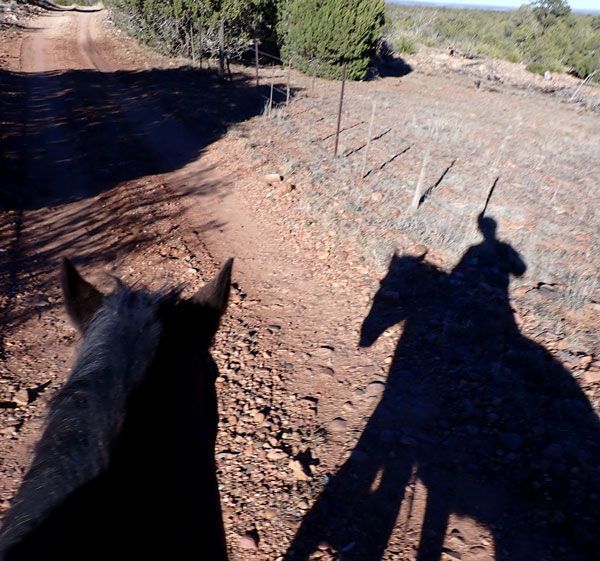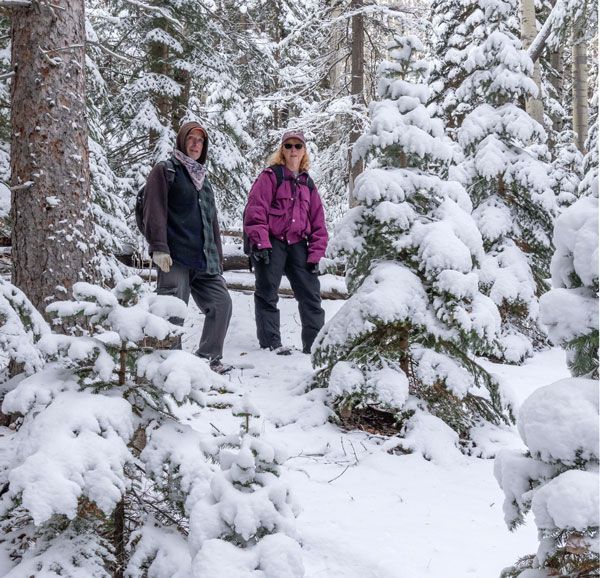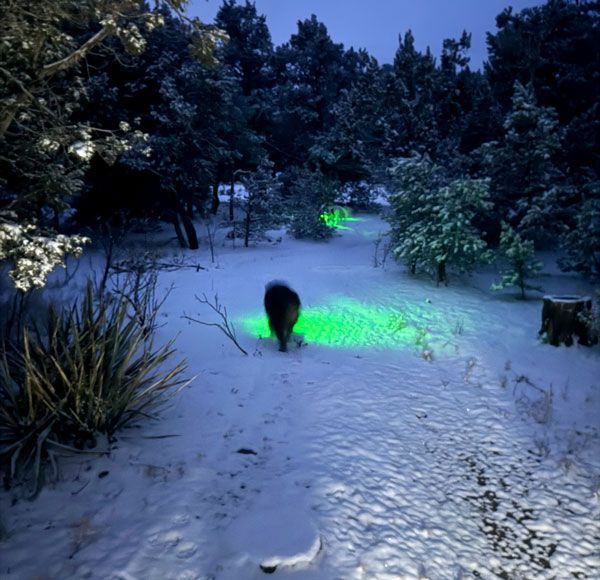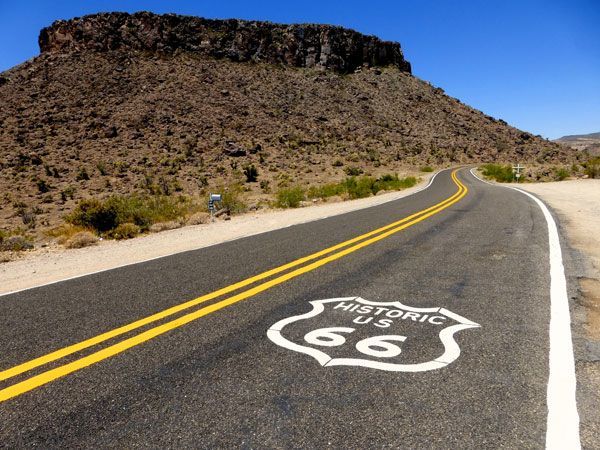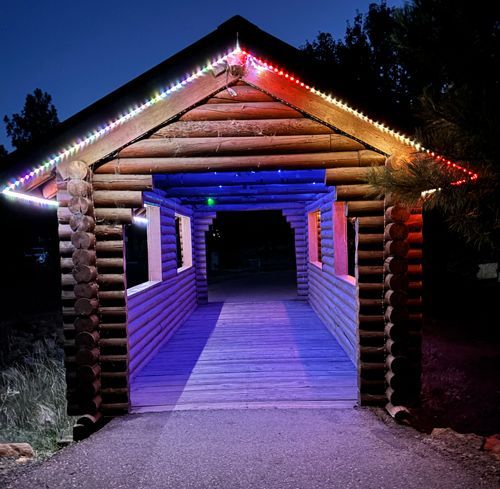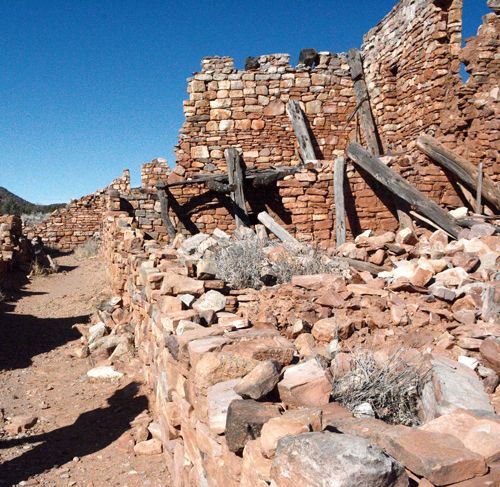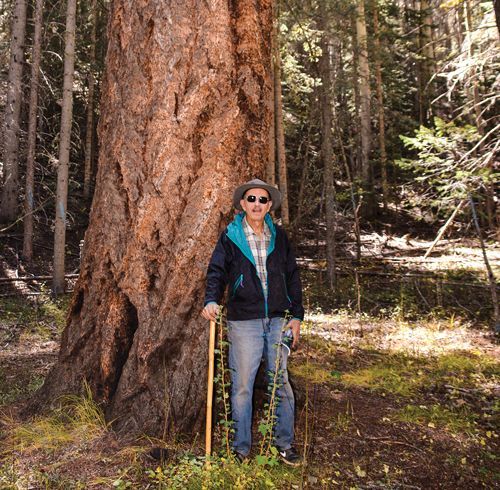This is a subtitle for your new post
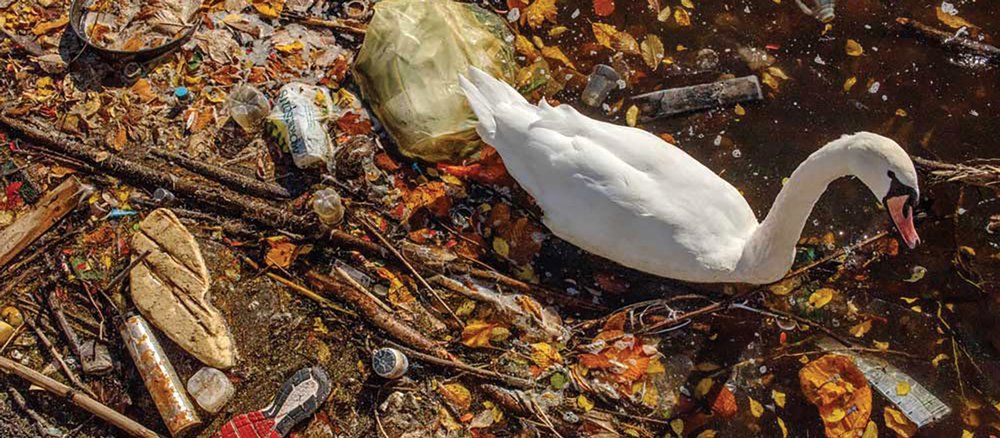
Let me paraphrase a well-known musical number: You got trouble folks, right here in River City, trouble with a capital "T" and that rhymes with "G" and that stands for garbage. Garbage my friends -- trash, refuse, litter, I say. Look around ya, it’s everywhere.
Let me put it another way: the snow is gone and we should be enjoying blooming flowers. And we are, but look there, right beside the emerging green stems and colorful petals, there you’ll see a small plastic bottle -- it’s a shot glass worth of “Fireball.” And there’s another, and another. Sadly, I’m not exaggerating and if you stroll around your hood as often as I do mine, you too, will notice that we are inundated by litter -- be it plastic, paper, aluminum, or, ew, what’s that, I’m not even sure... all I know is that it’s not one of Nature’s creations.
This is nothing new to us. We’ve noticed and mostly ignored our rubbish for many years. Way back in 1971 we even had a “public service advertisement” on the telly that warned us that the pollution problem was reaching a crisis. If you’re of a certain age, you remember that ad, dontcha’? A stoic Native American is canoeing, then walking, through a landscape blighted by trash, smog, and scum; he pauses, looks out across a despoiled country, and a single tear slowly rolls down his cheek. Well, first off, let’s overlook the fact that the supposed member of the Cherokee tribe (who went by the name of Iron Eyes Cody) was actually a professional actor of Italian ancestry. Let us also not highlight that the ad was made by a consortium of can and bottling companies. Rather, we can note that the commercial (brought to us by Keep American Beautiful) was a simple but powerful statement that we were fouling our own nest. And today, all these decades later, we continue to do so, only it is worse because there are so many more people and we are all living much more “consumptive” lives.
A quick check of the internet offers up some sobering statistics: the average American tosses 4.4 pounds of trash every single day -- or roughly 728,000 tons of daily garbage -- enough to fill 63,000 garbage trucks. Hopefully, most of this garbage is properly disposed of in “sanitary landfills;” but what about the litter that never makes it into our landfills and travels instead (by way of wind and waterways) into our oceans?
There are five great oceanic garbage patches or “gyres” -- the North Atlantic and South Atlantic Gyres, the North and South Pacific Gyres, and the Indian Ocean Gyre -- all of which have significant impacts on the ocean’s ecosystem. Another internet statistic: The North Pacific Gyre alone covers an estimated surface area of twice the size of Texas or three times the size of France. Most of this garbage is plastic and it floats just slightly below the ocean’s surface in enormous vortices (swirling, circular currents).
Besides the direct dangers to us, from chemical alterations being caused by the slow breakdown of all this plastic, animals are the initial and primary victims affected by litter every day. Researchers estimate that “over one million animals die each year after ingesting, or becoming entrapped in, improperly discarded trash. Plastic litter is the most common killer of animals, and marine animals are the most notably affected.”
Even here in town, the Game and Fish periodically responds to reports of wildlife imperiled by litter of one sort or another. Sadly, it is not uncommon to learn of water birds (herons, ducks, ospreys, etc) being entangled in monofilament fishing line. And no, I don’t point the blame solely at anglers -- that would be far too simplistic. Each of us, all of us, are responsible for the generation of trash, therefore, all of us should bear responsibility for following the adage of “reduce, reuse, and recycle.” Remember, there is no technological innovation that can substitute for personal responsibility.
We live in an era where we routinely hear the horror stories of Global Climate Change, which has become a catch-all for nearly all of our previous environmental misdeeds -- everything ranging from human-caused biodiversity loss to desertification. As a result, we may tend to think that the problem is so huge, so manifestly owned by all of humanity, that we, the individual, can do nothing to help the situation so why bother. Why, even, worry about it?
Moreover, we’ve been told by “experts” that a few key lifestyle changes, if done collectively by society, could make a massive difference in our planet’s health. But doing gigantic things seems difficult when we don’t see others doing them. So why, for example, eat lower on the food chain? Or, why drive and fly less, just because those activities are guzzling finite fossil fuels and adding to our greenhouse gases? Why, in fact, try to do anything that is meant to be eco-friendly, including not dropping that granola wrapper on the ground as we hike along our favorite trail?
Well, the answers to such questions are both simple and complex at the same time. Complex, in that there are many science-based explanations why we shouldn’t want to be living in a toxic stew of polluted air, water, and land. Simple, in that most of us aren’t nihilists -- devoid of ethics and placing no significant value on such things as beauty, harmony, and sustainability.
Because we are intimidated by the scale of something like reducing industrial pollution, perhaps it would help if we focus our efforts on something as straight-forward and visible as litter. A quick and easy possible effort would be to not over-stuff our trashcans so that the wind doesn’t easily blow open the lids and then scatter trash all through our town. Maybe just placing a rock or hunk of wood on the lid would help to minimize this problem?
Another discouraging and seemingly trivial example: folks who diligently pick up after their dogs but then leave the plump plastic bags scattered around our trails and roadways. Do such people think the “Pooh Fairy” is going to come along and miraculously whisk away all of those nasty little bags? Sure, in the big scheme of things dog poop is not as dangerous a problem as what to do with nuclear waste but, then again, that is why we can address it at the individual level and not rely on someone else to clean up our mess -- or the messes caused by our pets, kids, or other obligations that we have voluntarily taken on.
Maybe, in fact, one of the first steps is to start with our children. In the home and in the earliest grades of our schools more emphasis could be given to “personal responsibility” for not littering. We could even incorporate a basic form of environmental education at every level of our society so that the kids not only learn basic ecology at home and in each grade in school; but also in our churches, scouting groups, ballet studios, 4H clubs, Little League teams, and in every social group in which we and our kids are involved. These lessons should be continued into adulthood and, indeed, all through our lives.
And what about “Highway Adoption” efforts? Do such projects really make a difference? If so, for how long? Is there the possibility that they only perpetuate the notion that “someone else will pick it up” and are, perhaps, actually counter-productive? Would greater emphasis on small fine ticketing of litterbugs by our Law Enforcement agencies provide more “bang for the buck?” For that matter, have we given up on tackling the problem at the source? You know: bottle bills that require deposits on beverage cans and bottles. Or how about that old question at the grocery stores that we no longer hear: “Would you like paper or plastic?”
Obviously, I don’t have hard and fast answers to the very old question of how to deal with littering. Heck, just the other day I was driving along White Mountain Boulevard and wasn’t being “mindful” when all of a sudden a clump of plastic bags I had on the floor of my truck were caught by the wind swirling in through the open passenger-side window and half a dozen plastic bags were blown out into traffic. The ultimate irony was that I had those bags in the truck so that the next time I went grocery shopping I could put the empty bags in the recycling bin specifically placed at the store for that purpose. And yes, I know I could use a canvass bag for my groceries, and in fact, off and on for many years I have; but, sometimes it’s just not practical and/or “front of mind.” Never mind the annoyance expressed by some baggers….
I realize that such excuses are lame and, therefore, far be it for me to scold anyone. I will do my best to improve my own behaviors and, as the old expression goes, “live the change I want to see happen.” If I do that much, will my (333 million) fellow Americans do the same?


